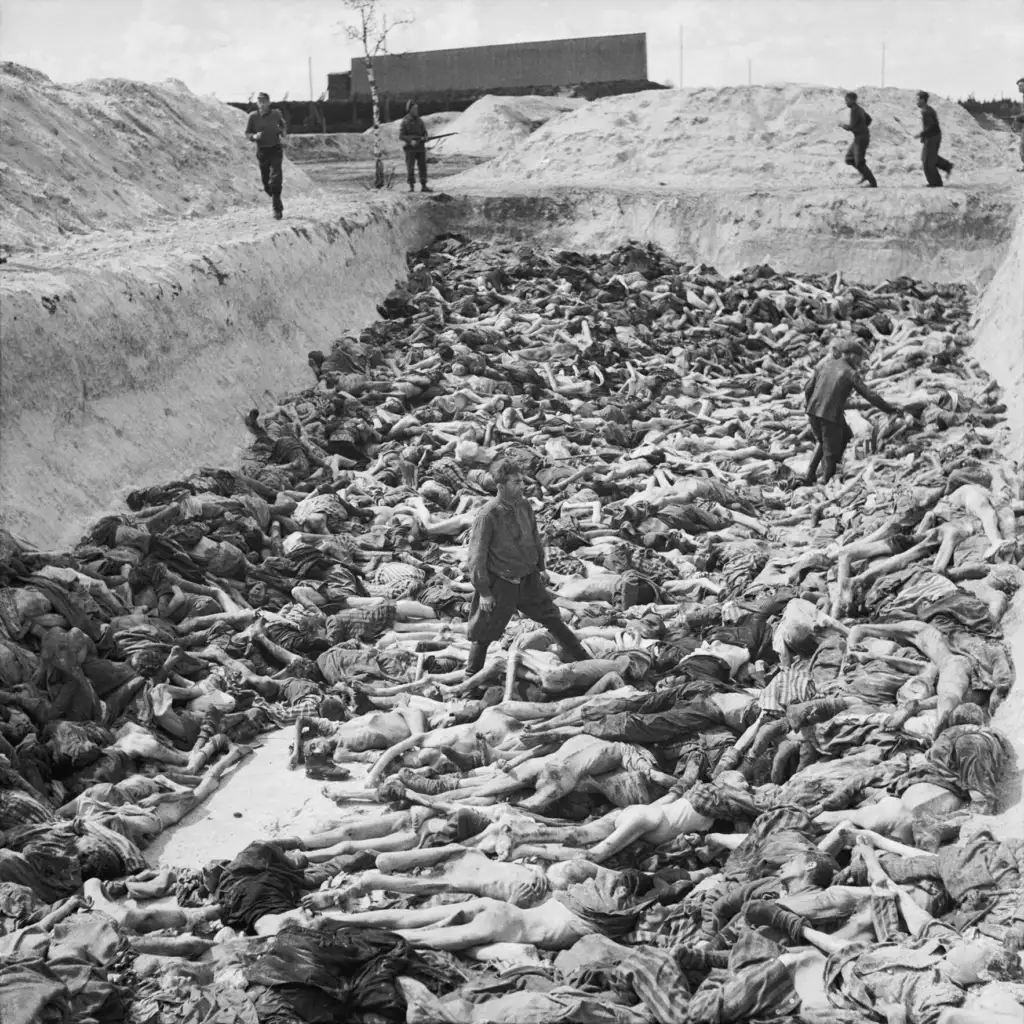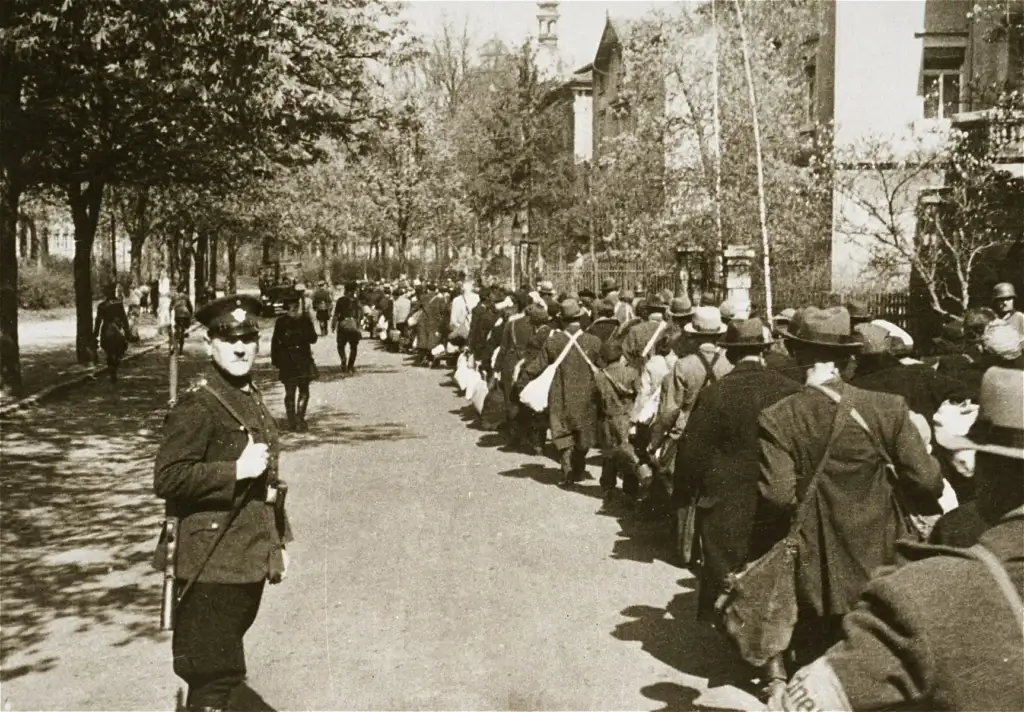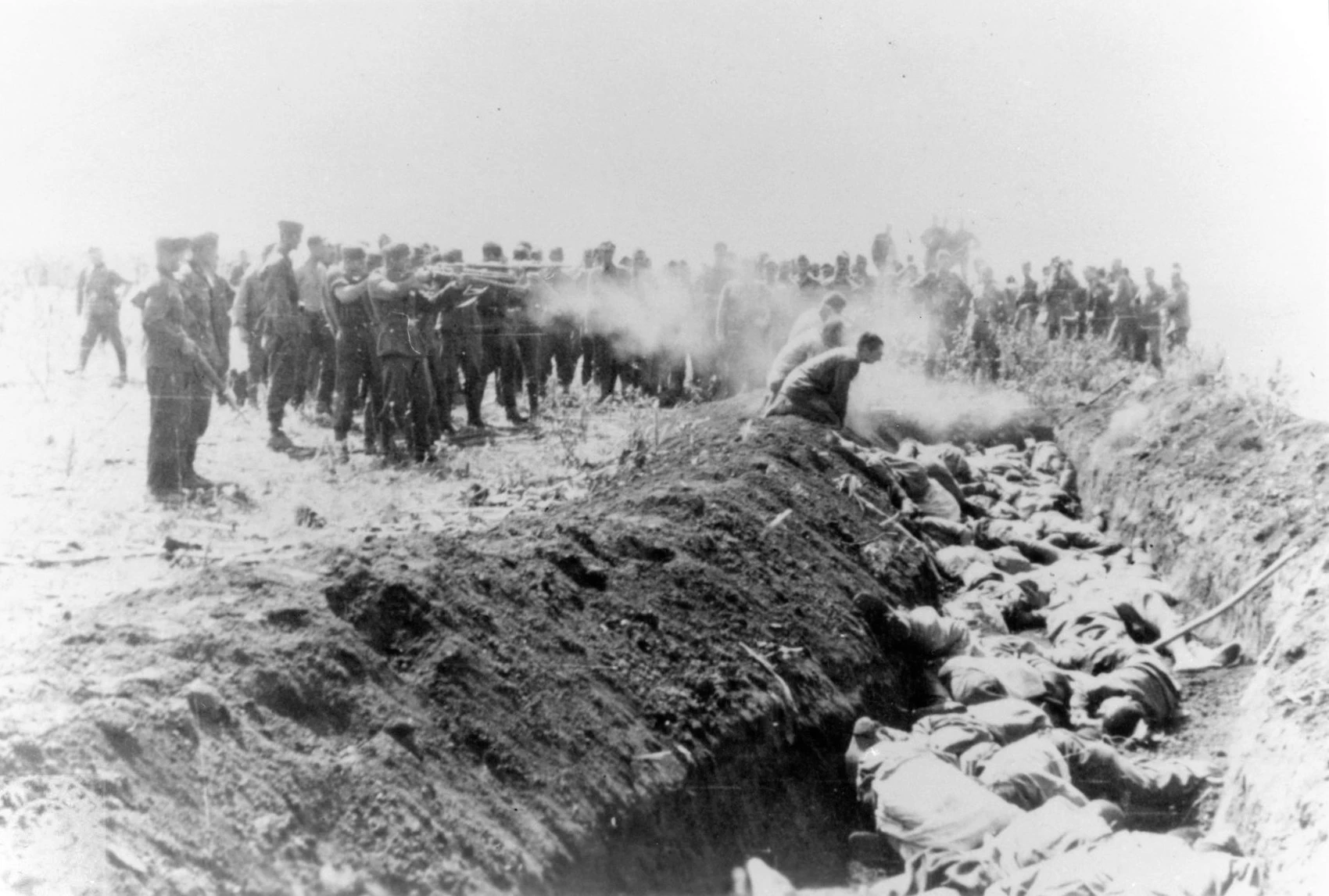Share This Article
Introduction:
In the annals of history, few names evoke as much dread and revulsion as Heinrich Himmler, the infamous architect of one of humanity’s darkest chapters. As a high-ranking member of Hitler’s Nazi Party, Himmler’s leadership within the Schutzstaffel (SS) catalyzed the implementation of the Holocaust – a grotesque manifestation of hatred and brutality that claimed the lives of millions.

Who was Heinrich Himmler & Why Nazi’s Hate Jews so much?
Heinrich Himmler, a name synonymous with terror and cruelty, rose to infamy as one of the most prominent figures within Hitler’s Nazi Party during the tumultuous era of World War II.

Born on October 7, 1900, in Munich, Germany. Himmler’s early life might seem unremarkable, marked by a conventional upbringing and education. However, it was the tumultuous post-World War I atmosphere that provided fertile ground for the seeds of hatred and extremism to take root in his psyche.
Childhood of Himmler

The diary of Heinrich Himmler, begun at the age of 10, reveals his early interests in current events, dueling, and discussions on religion and sex. He trained with the Landshut Cadet Corps and aspired to be an officer, but World War I ended before he could see combat. Himmler completed his education in agriculture after the war and remained a devout Catholic, though his antisemitic views grew over time.
Despite his growing prejudice, he maintained polite relations with Jewish acquaintances, even joining a fraternity with Jewish members. Himmler’s involvement in paramilitary activities increased, particularly after meeting Ernst Röhm, a key figure in the Nazi Party.
By 1922, Himmler’s diary showed a significant increase in antisemitic content, influenced by the murder of Walther Rathenau and the economic turmoil of hyperinflation. Disappointed by his inability to pursue a military career or further education, he took a low-paying office job until 1923.
Entry in Nazi Party

Heinrich Himmler joined the Nazi Party in 1923 and took part in the failed attempt to overthrow the Munich government at the Beer Hall Putsch. Himmler experienced career and personal failures after this incident, which caused him to become frustrated and change his perspective. He turned away from Catholicism and adopted antisemitism, occultism, and Germanic mythology.
Himmler found resonance in the philosophy of the Nazi Party, which drew him in. He was at first unimpressed by Hitler’s charm but as he ascended the ranks, he became to admire him. Himmler improved his personal standing by taking advantage of the disarray that followed Hitler’s imprisonment within the party.
He traveled throughout Bavaria as a party secretary, spreading Nazi propaganda under the direction of Gregor Strasser. Himmler joined the SS in 1925; it was first established for Hitler’s security, and he quickly attained senior posts.
Hate for Jews & Anti-Semitism in 12 Points
- Aftermath of Germany’s defeat in World War I: Germany faced economic turmoil, political instability, and humiliation after its defeat in World War I.
- According to Hitler & Himmler, Only Aryan Race(Noble Ones) are the pure race and deserve to live in Germany & One of this Nose Experiment is very famous in which Nazi’s check the Nose size and If it does not meet the requirement then You are Jew or Not a Pure Race.
- Himmler’s attraction to radical ideologies: Himmler, like many of his generation, was drawn to radical ideologies promising redemption and resurgence for Germany amid its discontent.
- Fervent nationalism: Himmler was captivated by Adolf Hitler’s vision of a racially pure and dominant Germany, driven by intense nationalism.
- A Propaganda started spreading from 1918 that shows Jews as sabotaging the Germany in WW1.
- Virulent anti-Semitism: Himmler harbored a deep-seated hatred of Jews, central to Nazi ideology.
- Historical roots of anti-Semitism: Centuries of religious, social, and economic prejudice in Europe fueled anti-Semitic sentiments.
- Allegations of Jewish responsibility for Germany’s woes: Himmler and others propagated the idea of a Jewish conspiracy, blaming Jews for Germany’s problems.
- Pseudo-scientific racial theories: Himmler also believed in theories of racial superiority and purity, casting Aryans as superior and Jews as a threat.
- In Mein Kampf, Hitler Explained that Jews only work for Money & They Don’t care about other people and most of the jews don’t even give chance to other races to compete with them. Accused Jews of exploiting the German economy for their own gain, particularly in the realm of finance and banking. He claimed that Jewish individuals and institutions engaged in usury and other unethical practices to enrich themselves while impoverishing Germans.
- Jews as an existential threat: In Himmler’s worldview, Jews were seen as a danger to the purity and vitality of the German race.
- Hitler propagated conspiracy theories about Jews plotting to dominate the world. He depicted Jews as manipulative and cunning, orchestrating events behind the scenes to further their own interests at the expense of non-Jewish populations.
Unraveling the Depths of Evil:
Heinrich Himmler’s ascent to power within the Nazi regime marked a pivotal turning point in the trajectory of human civilization. Born into a middle-class family in Munich, Germany, in 1900, Himmler’s early life offered scant clues to the malevolent force he would become. Trained as an agronomist, his entrance into the political sphere of the Nazi Party transformed him into the epitome of evil incarnate.

Under the guise of the SS, or Schutzstaffel, Himmler assumed control over a vast apparatus of terror. With unwavering devotion to Adolf Hitler’s racial ideology, he orchestrated the systematic extermination of six million Jews alongside millions of others deemed undesirable by the Nazi regime. Himmler’s leadership role within the SS was pivotal in the implementation of genocidal policies, with atrocities ranging from mass shootings to the establishment of extermination camps like Auschwitz-Birkenau, where the machinery of death operated with chilling efficiency.
The Banality of Evil:
What makes Himmler’s legacy all the more chilling is the banality with which he pursued his nefarious agenda. Behind the facade of bureaucratic efficiency, Himmler sanctioned and oversaw the implementation of policies designed to dehumanize, torture, and ultimately eradicate entire populations. The cold detachment with which he approached the annihilation of millions stands as a stark reminder of the depths to which humanity can descend when fueled by hatred and unchecked power.
Condemnation and Remembrance:
As we confront the horrors of the Holocaust and grapple with the legacy of individuals like Heinrich Himmler, it is imperative that we remember history’s darkest moments. By condemning those responsible and honoring the memory of the millions who perished, we reaffirm our commitment to never again allow such atrocities to transpire.

In conclusion, Heinrich Himmler’s role in the Holocaust serves as a chilling reminder of the consequences of hatred and the abuse of power. As we reflect on this dark chapter in human history, let us vow to remain vigilant against the forces of bigotry and tyranny, ensuring that the atrocities committed under Himmler’s command never fade into obscurity.
Battle of Okinawa 1945 : Read Here
Sources:
- United States Holocaust Memorial Museum : “Heinrich Himmler, Holocaust Encyclopedia Accessed”
- History.com : “Heinrich Himmler, A&E Television Networks, October 29, 2009”
- Longerich, Peter : “Heinrich Himmler: A Life. Oxford University Press, 2012”
- Wikipedia
- Britannica & Encyclopedia
- Mein Kampf, Autobiography of Hitler
- Aryan Invasion Theory
